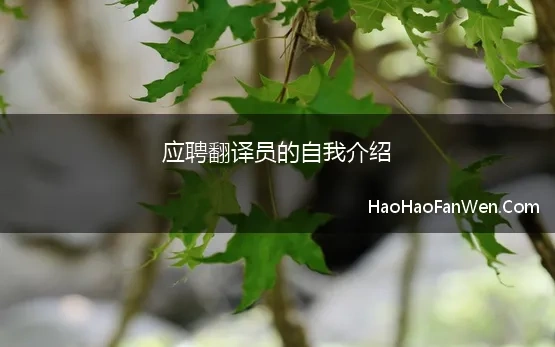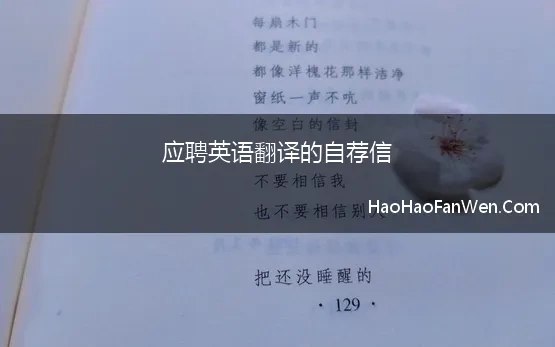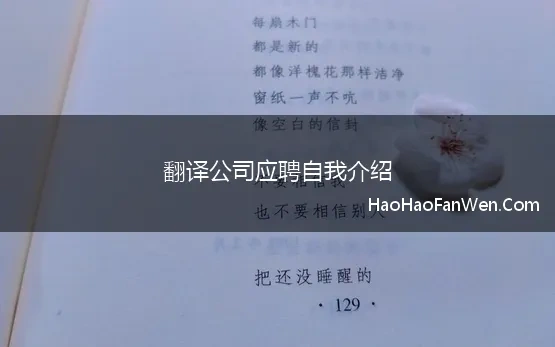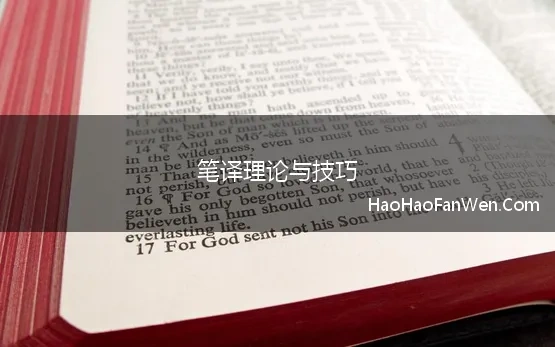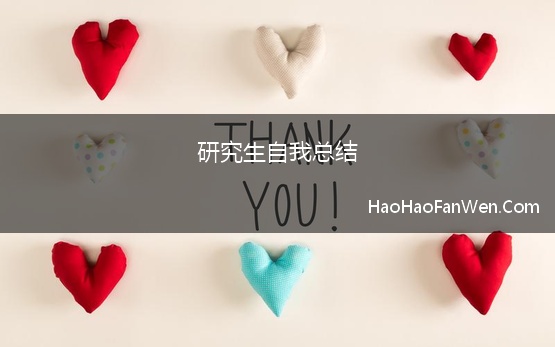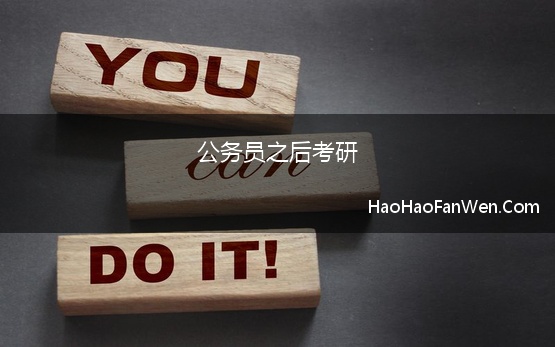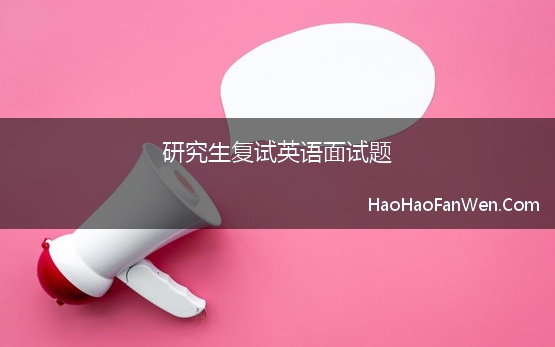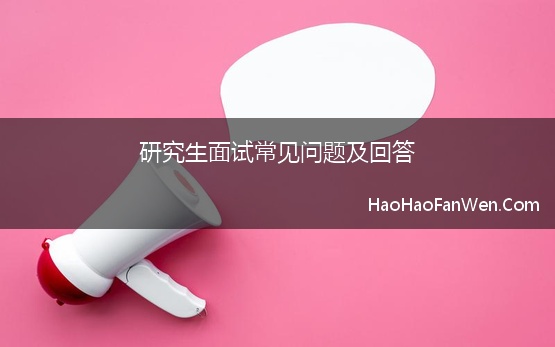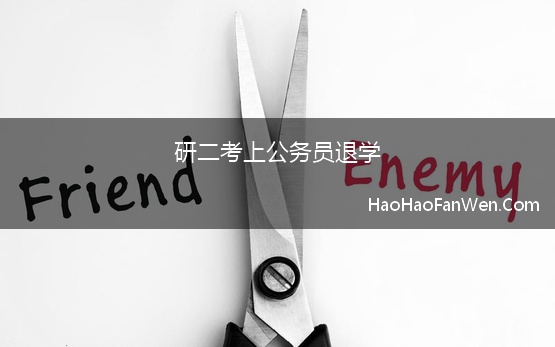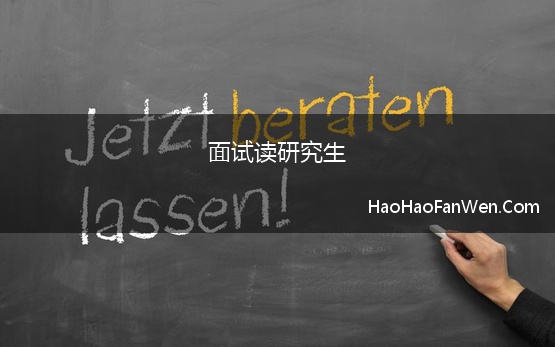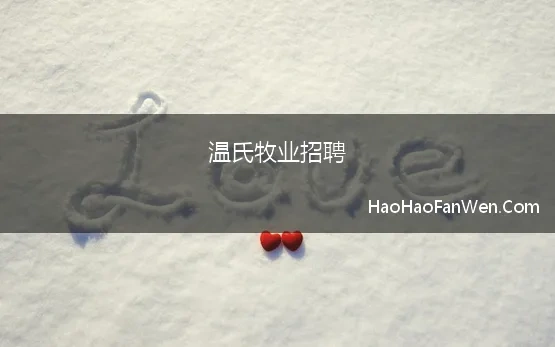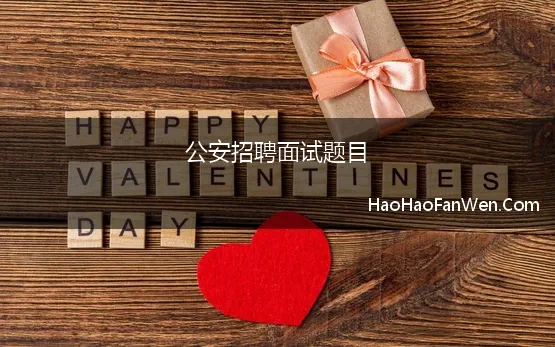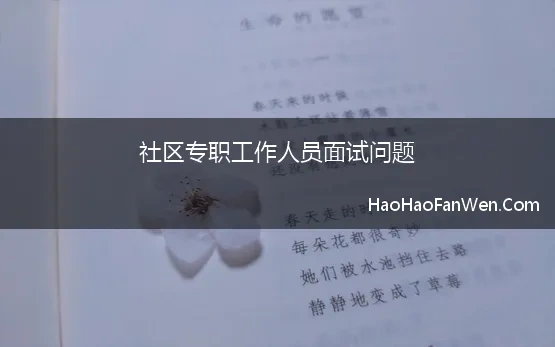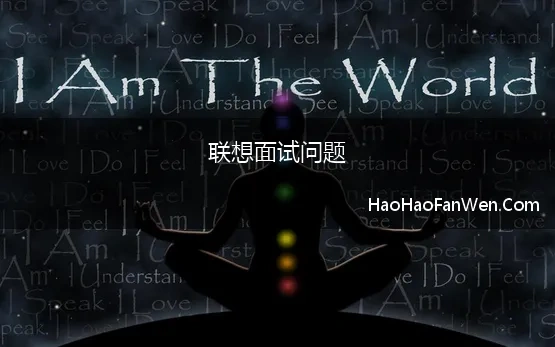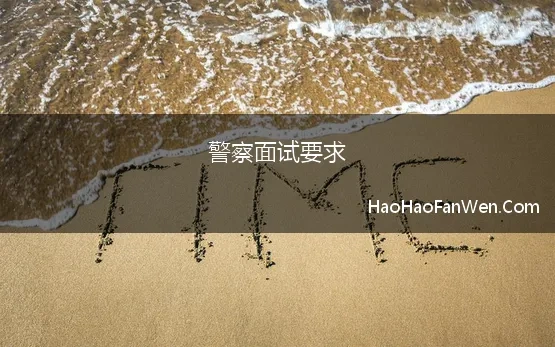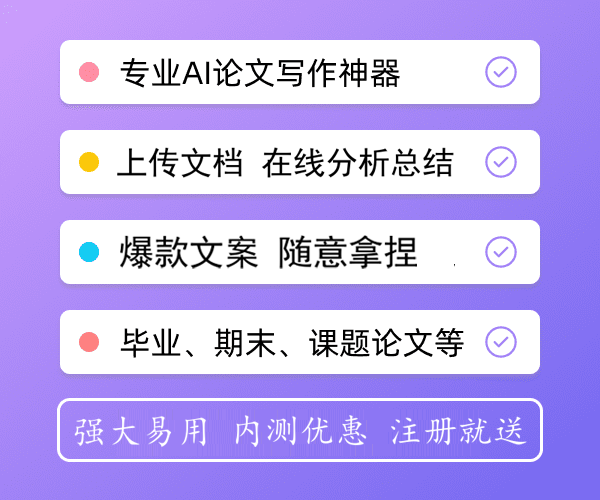翻译员面试问题(MTI翻译硕士研究生复试面试高频问题汇总)
下面是好好范文网小编收集整理的翻译员面试问题(MTI翻译硕士研究生复试面试高频问题汇总),仅供参考,欢迎大家阅读!
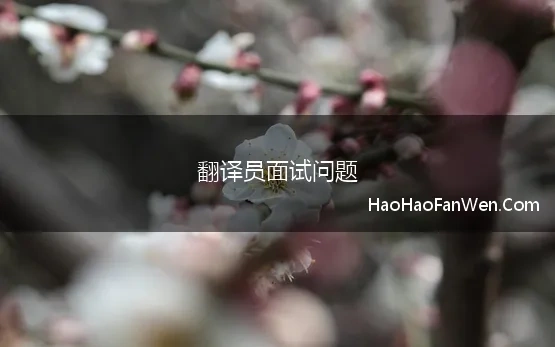
听说考研成绩出了,很多学弟学妹要翻译硕士面试啦。奉上我去年写的《MTI翻译硕士研究生复试面试高频问题汇总》完整版见我公众号。
睡不着想起今天很多新的学妹加我问我考研复试的事。我就爬起来写了这篇了,希望能有帮助。
人生说到底是一场一个人的战争,你翻山越岭而天地寂静无声,你惊心动魄而世界一无所知。这句话忘记在哪里看到的,我备考时写在了笔记扉页上。真不是矫情,大概经历过的都会懂 。送给你们啦,祝大家成功。
第一天交材料报道
第二天上午笔试下午面试
面试先自我介绍,然后众老师轮番提问,接着视译 口译 (各学校不一样哦)。
一般面试英文自我介绍1分钟左右就可以
这个没什么好说的,自己写好,一定要背熟,千万不要给自己挖坑,我记得当时我说了我对翻译的兴趣始于小时候读赵元任翻译的《爱丽丝梦游仙境》,自我介绍完后老师问我,《爱丽丝梦游仙境》的作者是谁,当时我是一懵的,但还好我记得。然后我提到在北京新东方系统学过口译,老师问新东方老师和大学老师上课风格各有什么优缺点,这个问题我答的胆战心惊。
提问问题环节每个学校都有自己的特色啦,但万变不离其宗,主要包含以下几个方面的问题。
第一:和翻译,英语相关的专业知识。
1.你最喜欢的翻译家是谁?为什么?
(我当时说的是许渊冲老先生,还举了老先生翻译的诗歌作为例子)
2.你读过什么翻译理论著作?
(这个太多了自己想去吧举个例子思果翻译研究谭载喜中西翻译简史这本还可以当成笔试翻译理论的教材来看强烈推荐)
3.你有参与过具体的翻译项目吗?
4.简要介绍一个翻译理论
5.你为什么喜欢翻译?你为什么选我们学校?
6.你觉得怎么样才能成为一个好的译者/一个好的译者应该具备哪些素质?
7.你本科论文写的什么?具体讲讲
8.你大学时最喜欢的一门课是什么?这个直接说翻译课就好了,我记得我当时紧张到说了英美文学.......
9.读研期间有什么规划
10.你觉得一个译者翻译技巧重要还是背景知识重要(我当时被问了这么问题)类似的还比如你觉得归化好还是异化好啊
第二,和你日常相关的
11.爱好
12.家乡
第三,和当下社会热点相关的(这个不是所有学校会问记得北语会问哈哈哈哈哈心疼一把)
13.比如你怎么看待中美贸易战
下面是我当时整理的,最好自己写,别照背。
1.读过什么相关的笔译和口译书
1)中式英语之鉴:The Translators’ Guide to Chinglish The author of the book, Mrs.Pinkham worked as a translation polisher in China. Her job was to take a completed Chinese to English translation and polish it up to look more English than Chinglish Chinglish in this book is quite different from the incomprehensible and often hilarious forms. Rather, here it stands for English that is largely grammatically and syntactically correct but has a very strong "Chinese favour" --It is good for those who already have a reasonable command of English and translation, but lacks the needed polish in their work. The book is divided into three parts. Part I, namely “unnecessary words”, “sentence structure” and “Supplementary Examples.” Each part is dedicated to a level of language. In short, the book make my English more like English.
2.)非文学翻译理论与实践:This book focuses more on practice than on theories. The author of Theory and Practice of Non-literary Translation, Prof. Li changshuan of BFSU stresses the significance of using electronic means to enhance the quality of target language. From the book, I learn that English need to be concise as long as the rendering deliver all the meanings of the original text.
3.)高级英汉翻译理论与实践:advanced course in English-Chinese translation:While as to the other book, 叶子楠,the better part of which is dedicated to EC translation, I am aware that there is much more to learn to become a qualified translator. Prof. Ye put theories in practices. From his version of pieces, many practical techniques find their into my mind. He really demonstrates smooth flow of idea and meaning in the translated text, setting a higher bar for newbies like me.
1.名人翻译家的理论、策略、翻译理论。
什么是翻译
Answer: First of all, please allow me to quote Eugene A. Nida’s definition “Translating consists in reproducing in the receptor language the closest natural equivalent of the source language message, first in terms of meaning and secondly in terms of style.”/ Peter Newmark “translating is rendering the meaning of a text into another language in the way the author intended the text.” / Christiane Nord “Translation is the production of a functional target text maintaining a relationship with a given source text that is specified according to the intended or demanded function of the target text.”
Some people believe that translation is an art. While some may cling to the idea that translation is a science.Well, as far as I am concerned, I think translation is the combination of both. It is a process that involves the recreation of a work in another language for readers with a different background. The process of translation asks for the guide of theory as well as skills.
Translation is often compared to a bridge, which is not just between the source text and the target text, but between the author of the text and the reader of the target text. Translator has to analyze the intention of the author in writing the source text and try to convey it to the reader of the translation, who should understand the intention of the author through the target text.
后续完整版见我公众号。

